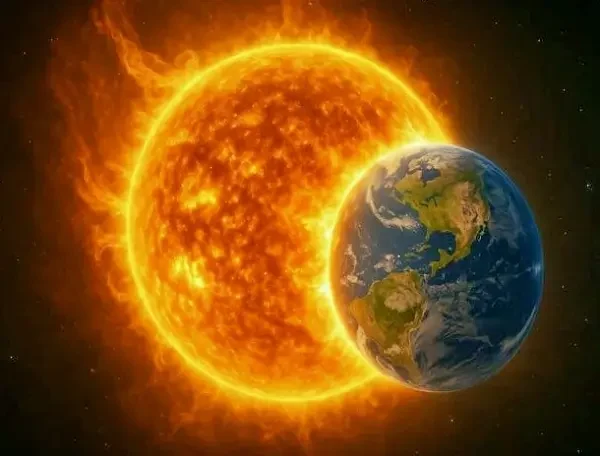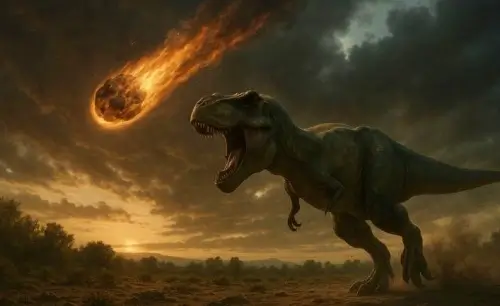Humanity. In an age dominated by doom-scrolling and dire headlines, it often feels as if humanity is living on borrowed time.
The news and social media are relentless in their reports of escalating climate disasters, devastating pandemics, and precarious geopolitical tensions, painting a picture of a world teetering on the brink of collapse.
We are bombarded with chilling images of floods and wildfires, and the memory of a recent global pandemic that brought the planet to a standstill is still fresh. This constant stream of information can create a pervasive, paralyzing sense that human existence is about to be terminated.
But what if we took a breath, dismissed the panic, and looked at the data?
A calmer, more rational discussion about our future reveals a far more resilient prospect. Are we truly doomed, or is our unparalleled capacity to adapt and overcome challenges far greater than the threats we face?
I am convinced that not only will humanity survive the immediate crises, but we are also primed to endure for at least another 700,000 years, potentially much longer.
Yes, we are undoubtedly walking a tightrope, but our astonishing ability to learn, innovate, and adapt to new circumstances is our ultimate lifeline. Here’s why the human story is far from over.
Humanity, assessing the True Threats to Our Existence
Stripping away the emotion, the primary, existential threat to human civilization is indeed the climate crisis. Our planet is increasingly behaving like an overheated pressure cooker.
Record-breaking heatwaves are becoming commonplace, and sudden, torrential downpours trigger catastrophic flooding.
Scientists agree that we still possess the tools to mitigate the worst risks, provided we rapidly reduce carbon emissions and accelerate our efforts to adapt to a warmer world.
While no respectable expert guarantees the “end of humanity” from climate change alone, they are right to study the worst-case scenarios. Understanding our vulnerabilities is the first step to focusing our strength and resources.
The Specter of Nuclear War.
The next often-cited threat is a nuclear exchange. The world currently stockpiles enough nuclear weapons to turn the entire planet into a real-life Fallout scenario. However, even the most pessimistic simulation models do not predict absolute, guaranteed extinction.
The consequences would, of course, be cataclysmic: mass starvation, immense casualties, and the collapse of global infrastructure. Yet, with rational cooperation and preparation, it would be possible for pockets of humanity to survive and rebuild.
The simple fact that a nuclear winter doesn’t equate to a total species wipeout fundamentally changes the calculus from “extinction” to a “devastating bottleneck.”
The Reality of Plagues and Asteroids.
Less spectacular, but equally real, is the threat of new pandemics. The COVID-19 pandemic served as a brutal, global lesson. We learned the critical importance of rapid response, and the development of multiple effective vaccines in record time showcased our immense scientific capability.
This experience is not a sign of inevitable doom; it’s a valuable blueprint for better preparedness and faster reaction times in the future.
What about the Hollywood-favorite threat: asteroid impacts? NASA has already demonstrated its capability to alter the trajectory of celestial bodies, proving that these are not unstoppable acts of fate. Furthermore, no giant, extinction-level asteroid is predicted to pose a significant threat in the next hundred years.
Even the much-publicized Apophis asteroid, which will make a record-close pass to Earth in 2029, will be a mere visual spectacle, not a danger. This skyscraper-sized space rock will pass by at a distance of only about 31,000 kilometers significantly closer than the Moon and will be visible to the naked eye.
Crucially, NASA has confirmed that its trajectory poses a minimal collision probability for both its 2029 and 2036 flybys. Simply put, why worry about a threat that is demonstrably being monitored and whose risk is minimal?
Even a supervolcano like Yellowstone is, in the near term, more likely to attract tourists than trigger the apocalypse. All these examples highlight a fundamental truth: risks exist, but they are manageable. As a species, we are not passively waiting for disaster; we are actively engineering solutions.
The Statistical Case for Our Longevity.
To truly understand our potential lifespan, we must look at the deep history of life on Earth. Extinction is a normal part of evolution. According to sources like National Geographic, over 99% of all species that have ever existed are now gone, and the planet has weathered multiple mass extinction events.
Evolution is a natural process where old life forms make way for new ones. However, the fact that nature “wiped the slate clean” for most species over millions of years does not mean our ticket has been punched.
When we consult paleontology data, we find that the average lifespan of a mammalian species is approximately one million years. Homo sapiens has existed for only about 300,000 years, making us evolutionary newcomers.
This gives us a statistical edge: mathematically, we have, at the very least, another 700,000 years of potential existence ahead of us, simply by surviving the mean average lifespan for our biological group.
More Than Just a Typical Mammal.
Moreover, we are not a typical species. When the Chicxulub asteroid struck Earth, the dinosaurs could do little but panic. Are we merely ignorant lizards? No. Humanity has evolved the capacity to predict threats and engineer countermeasures.
• Asteroids? We can alter their orbits.
• Pandemics? We have vaccines and global surveillance systems.
• Climate and nuclear risks? These are complex challenges that can be regulated, mitigated, and adapted to, provided we can muster the collective intelligence and foresight.
For the first time in planetary history, a single species—us—has gained the power not just to endure nature’s whims, but to actively manage its own destiny. We have transitioned from being subjects of evolution to being co-authors of our future.
The Final Horizon.
The Sun’s Limit.
As resourceful as we are, we are not immortal. Even if we successfully navigate pandemics, nuclear standoffs, and climate change, Earth is not an eternal home. We know that the Sun is gradually getting hotter, and in a few billion years, conditions on our planet will rapidly deteriorate.
Eventually, in about five billion years, the Sun will expand into a Red Giant, consuming everything in its path. Our cozy home, however cherished, comes with an expiration date.
But even this cosmic deadline is not a sign of guaranteed annihilation. Humanity has the capacity to outlive the Earth if we can successfully transition to a multi-planetary civilization.
Colonizing Mars, the Moon, or even building massive space habitats would de-link our fate from that of a single world. This would transform a planetary extinction risk into a temporary setback for one colony.
The Ultimate Escape.
Digital Immortality.
If interstellar travel proves too arduous, there is another mind-boggling possibility: digital immortality. The concept of eventually transferring human consciousness onto computers living in a digital, non-biological form would render solar flares, climate shifts, and even the Red Giant phase harmless.
It sounds like science fiction, but this may be the ultimate testament to our ingenuity: the ability to transcend biology and cheat the stars themselves.
From surviving the average mammalian lifespan to potentially colonizing the galaxy or uploading our minds to the cloud, the evidence overwhelmingly suggests that the human story has only just begun. We may be balancing on the edge, but we are holding the rope, and we know how to tie a knot.
I’ve shared my perspective on the deep future of humanity.
What do you think? Is our adaptability enough to guarantee another 700,000 years, or are there unseen challenges that will shorten our timeline?
Have a Great Day!




